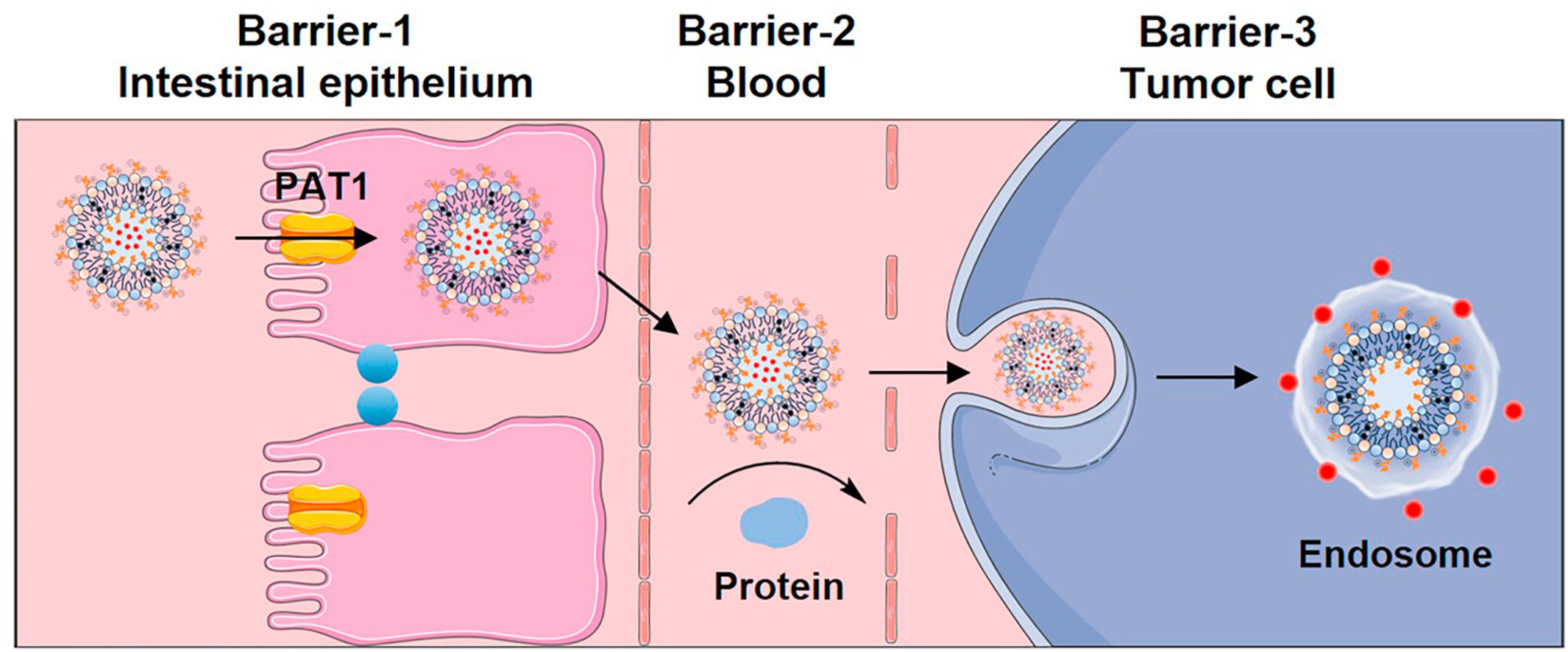• Targeted and pH-sensitive polyzwitterionic liposomes overcome physiological barriers during oral anticancer drug delivery.
• Targeted and pH-sensitive polyzwitterionic liposomes with doxorubicin hydrochloride significantly inhibit tumor cells growth.
• Targeted and pH-sensitive polyzwitterionic liposomes provide a promising approach for oral cancer therapy.
Compared to intravenous injection, oral administration is attractive due to its many advantages for cancer therapy. Taken physiological barriers and other profiles of oral anticancer drug carriers into consideration, targeted and pH-sensitive polyzwitterionic liposomes (ZL) based on zwitterionic poly(carboxybetaine) (PCB) were constructed for oral delivery of doxorubicin hydrochloride (DOX·HCl) for cancer therapy. The DOX-ZL with 40% trehalose had good lyophilization stability, which would be packaged into enteric capsules to enhance their stability in stomach. In addition, DOX-ZL exhibited good storage stability and serum stability. The DOX-ZL could achieve controlled release of DOX·HCl at the endosomal pH 5.0 due to the pH-sensitive of zwitterionic PCB. Importantly, DOX-ZL could targeted deliver DOX·HCl to Caco-2 cells to cross the intestinal epithelial cell layer. The empty ZL had good biocompatibility, while DOX-ZL significantly inhibited tumor cells growth due to their high cellular uptake and controlled drug release ability. Therefore, this work provided a promising approach for oral cancer therapy.

